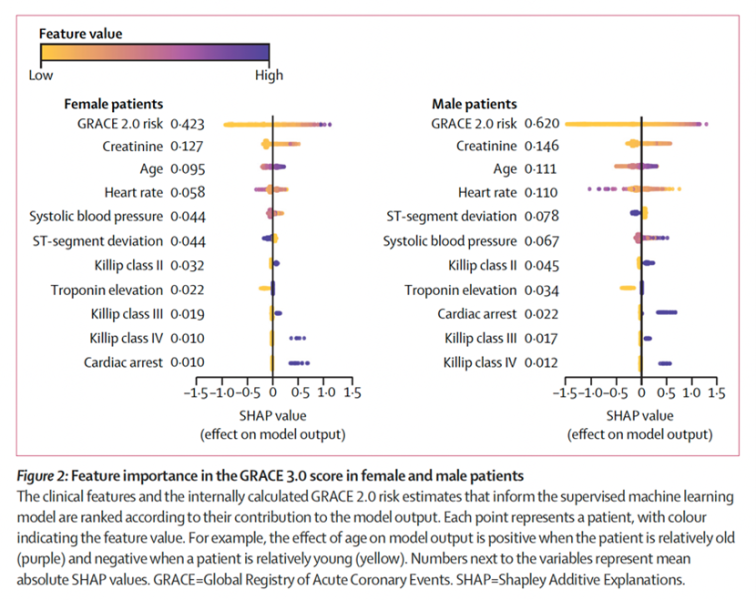

Personalized medicine is key to the successful treatment of patients with heart attacks (ACS). International guidelines recommend the GRACE scoring system which predicts the probability of future death in patients presenting with ACS using clinical characteristics, the electrocardiogram, and cardiac biomarkers. Florian Wenzl and colleagues have recently developed the improved artificial intelligence-based GRACE 3.0 score and published their results in the world’s leading medical journal, The Lancet.
GRACE 3.0 integrates the prognostic information of previous score versions while providing additional predictive value by leveraging a supervised machine-learning algorithm which was trained and tested in one of the largest studies on risk prediction to date. The score was derived from over 27-times more patients than previous risk models and, for the first time, accounts for non-linear relationships as well as for sex-differences in the risk factor profile. This way, GRACE 3.0 achieves unprecedented predictive performance that allows for more accurate patient stratification.
In a follow-up article, The Lancet recently published the web link of the official GRACE 3.0 online calculator available on www.grace-3.com. The updated tool for early risk assessment is free of charge and now available for clinical use.
The GRACE 3.0 score directs more female patients towards lifesaving early invasive treatment using percutaneous coronary intervention (PCI). Its clinical use is anticipated to refine personalized treatment and to reduce sex inequities.

Unprecedented performance: GRACE 3.0 accounts for non-linear relationships as well as for sex-differences in the risk factor profile.

First Author, Dr. Florian A. Wenzl, presenting the study results at the ESC Congress 2022

Prof. Thomas F. Lüscher, MD FRCP, Lead of the Study Network